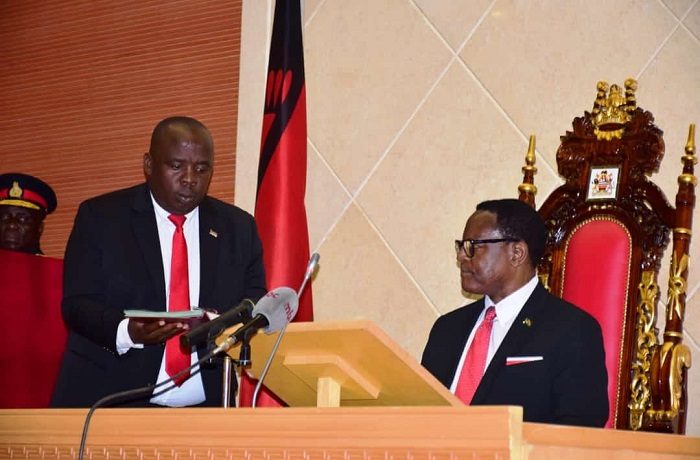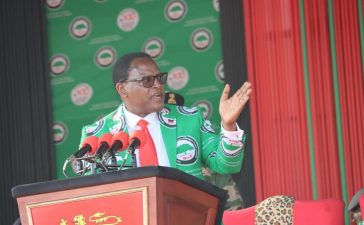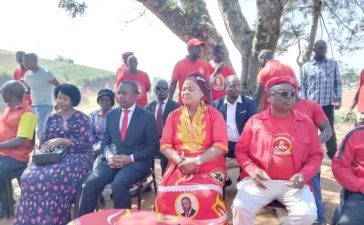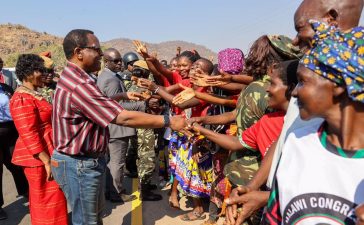The political landscape in Malawi witnessed a significant development yesterday as President Dr. Lazarus Chakwera declined to give his assent to the Political Parties Amendment Bill, a piece of legislation that had received approval from the National Assembly and had been duly presented for his endorsement.
During the December parliamentary session, the National Assembly sanctioned the bill, endowing the State with the authority to allocate funds to a political party with representation in the National Assembly on a quarterly basis. This financial provision aimed at sustaining the day-to-day operations and electoral expenses of the respective political parties.
The constitutional framework of the Republic specifies that a political party failing to secure a 10 percent representation in the National Assembly is deemed inadequate in representing the populace. Consequently, there exists no rationale for taxpayers, through the State, to financially support such a party.
President Chakwera’s dissenting stance on the bill emerged in the wake of media revelations spotlighting the purported lack of engagement among certain ‘sleeping’ members of Parliament during its passage.
Leader of the House, Richard Chimwendo Banda, acknowledged deficiencies in the legislative process, attributing blame to the Clerk of Parliament for purportedly inadequate scrutiny of the Private Members’ Bill.
The Malawi Law Society (MLS) also censured the legislators, asserting that their approval of the bill indicated a self-serving representation, focusing on personal and familial interests. In response to this contentious scenario, Presidential Press Secretary Anthony Kasunda, in a statement on Thursday, clarified that while Chakwera dissented to the Political Parties Amendment Bill, he accorded his assent to several other legislative measures. “His Excellency Dr. Lazarus McCarthy Chakwera, President of the Republic of Malawi, in exercise of powers vested in him by Section 89 of the Constitution, has dissented to Private Members’ Bill No. 1 of 2023: Political Parties (Amendment) for its non-compliance with Section 40(2) of the Constitution,” the statement reads.
At the same time, Chakwera has assented to Bill No. 20 of 2023: Ombudsman (Amendment); Bill No. 21 of 2023: Electronic Transactions and Cyber Security (Amendment); Bill No. 22 of 2023: Data Protection; Bill No. 23 of 2023: Persons with Disabilities.
Other proposed pieces of legislation he has nodded to are Bill No. 24 of 2023: Tobacco Industry; Bill No. 25 of 2023: Investment and Export Promotion; Bill No. 26 of 2023: International Arbitration; Bill No. 27 of 2023: Special Economic Zones and Bill No. 29 of 2023: Appropriation (Amendment).
Meanwhile, MLS President Patrick Mpaka has, while commending Chakwera for checking on Parliament, asked legislators to draw a lesson from the development and conduct themselves in a manner befitting legislators.
“On this occasion, the President has provided appropriate and responsible checks on Parliament. This is how the three branches of government need to operate.
“We hope that our parliamentarians [will] pick up the lesson to abide by [provisions of] the Constitution because public resources were, no doubt, spent on such an, otherwise, not very useful exercise,” Mpaka said.
In a previous interview, Mpaka said the bill, in its current state, does not stand because of inconsistencies with the Republican Constitution.
He added that the amendment runs contrary to the Constitution in the sense that if a party does not have 10 percent representation, then it falls short to represent people, hence no need for taxpayers to fund it.
“The authority to govern derives from the people through universal and equal suffrage, according to Section 6 of the Constitution. So, if, as a political party, you cannot get even one-tenth of the voice of the people, who are you representing”
“You are representing yourself and your clique of friends and family. A political party must have some national presence, and acceptance seems to be the idea behind such laws. You cannot be getting people’s money to fund your family business disguised as a political party. That is the spirit of Section 40(2) of the Constitution. The amendment to the Political Parties Act made by Parliament runs contrary to that constitutional spirit,” Mpaka said.
In an interview Thursday, executive director for Centre for Human Rights and Rehabilitation Michael Kaiyatsa also hailed Chakwera for dissenting to the bill.
“Assenting to this bill would have been a retrogressive step, considering that some of its provisions are inconsistent with the Constitution,” Kaiyatsa said.
“This bill needs to be returned to the Speaker of the National Assembly as per Section 73 of the Constitution. It needs further scrutiny to remove all the problematic provisions and ensure that it is fully aligned with the Constitution,” Kaiyatsa said.
Analysts said last week that the passing of the bill showed that MPs slept on the job and that they were ignorant of provisions of their own Constitution.
On the other hand, Mbawala said: “So, it is not that the committee slept on the job; no. The authorities, Clerk of Parliament, did not do the needful and the bill was rushed through.”
And, on his part, Chimwendo Banda indicated that while this was a Private Members’ Bill and that the government side could not do anything about it, the House could have detected the anomaly and referred the bill to the Legal Affairs Committee.
When the bill was passed, Zomba Ntonya law maker Ned Poya, who brought the bill to Parliament, described the development as “a great day for democracy” in the country.













